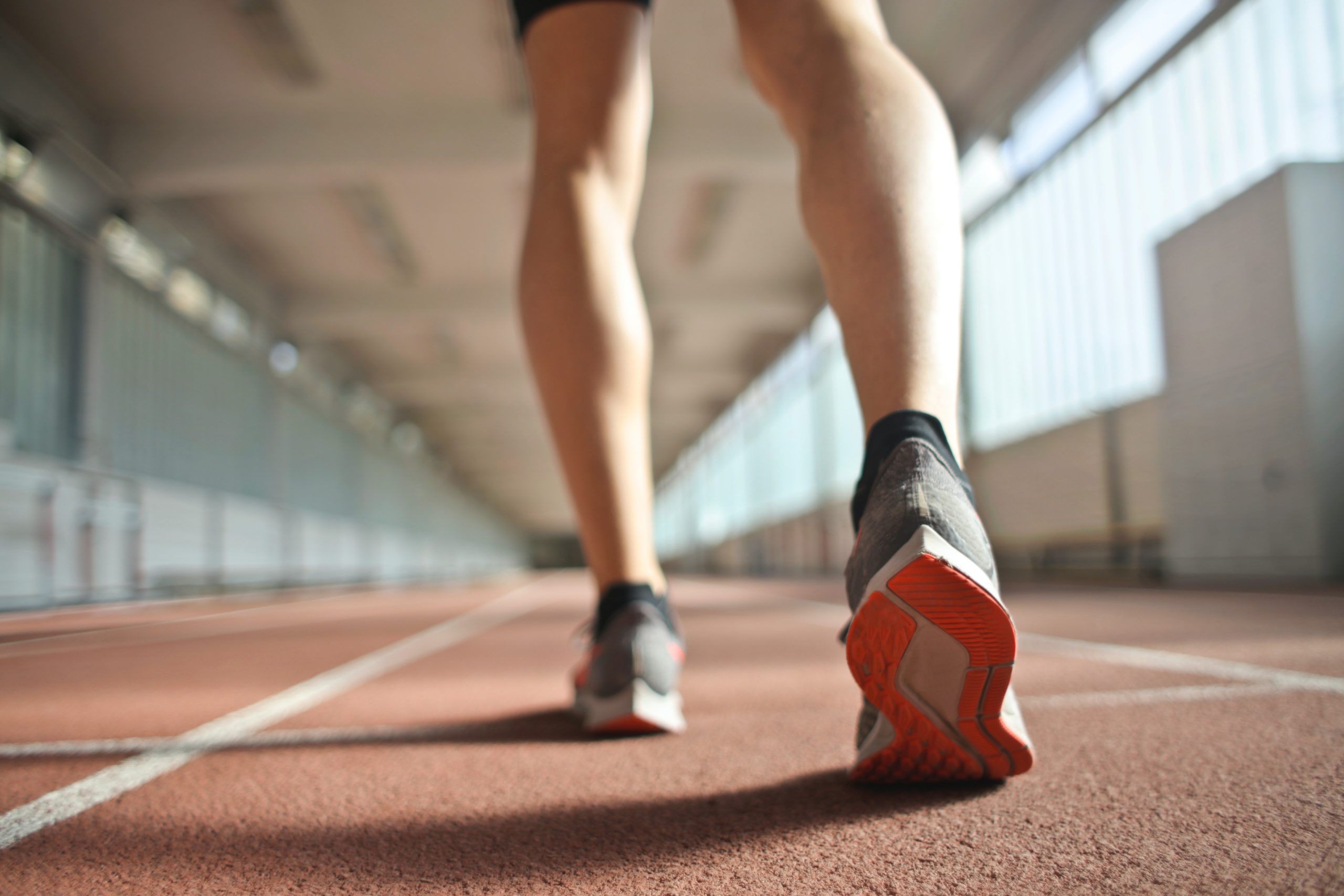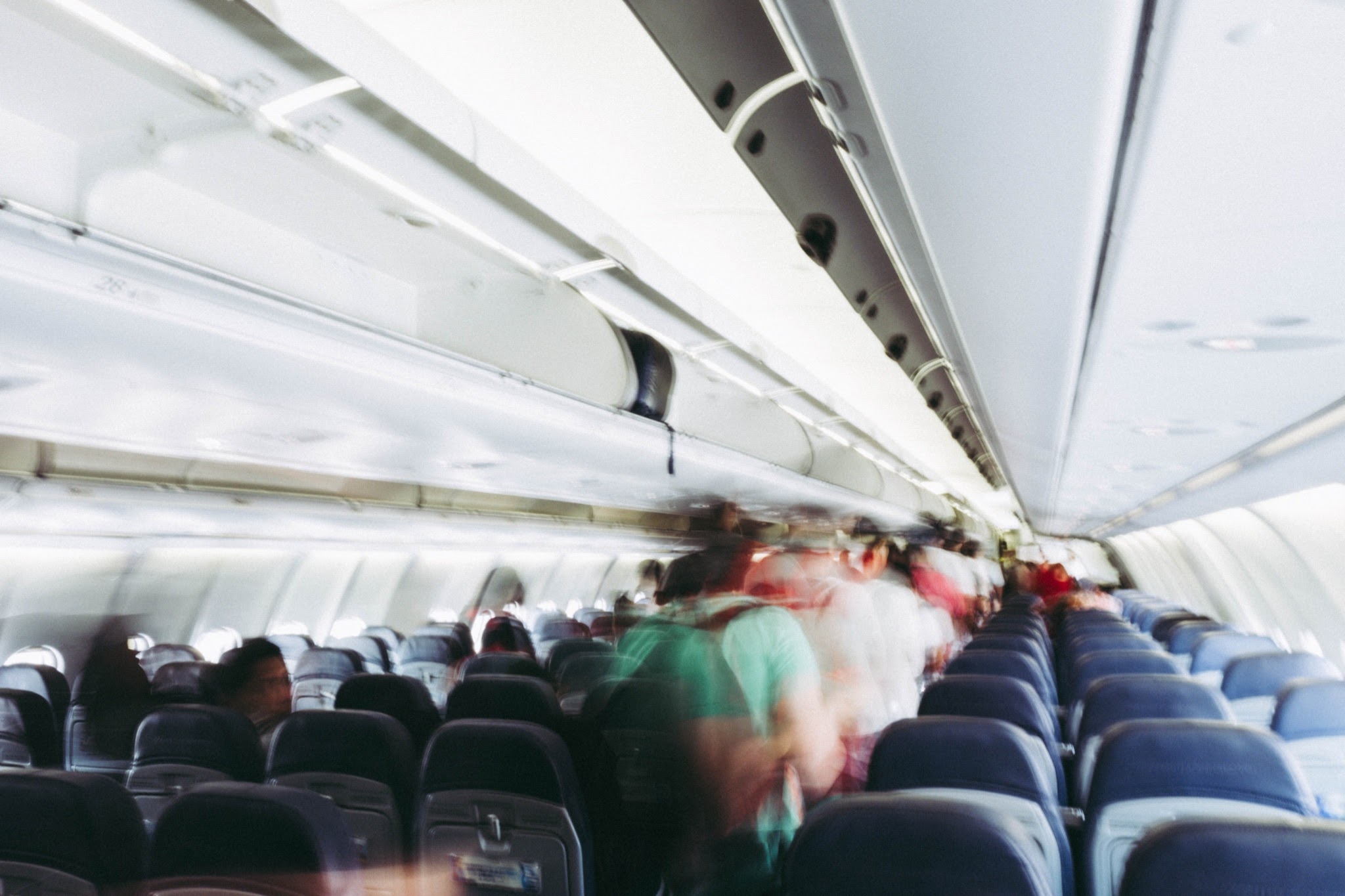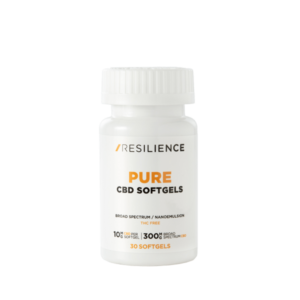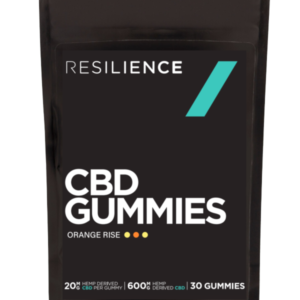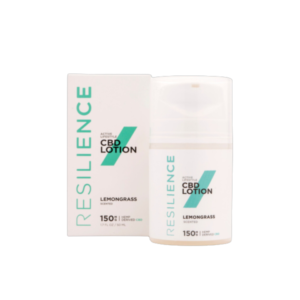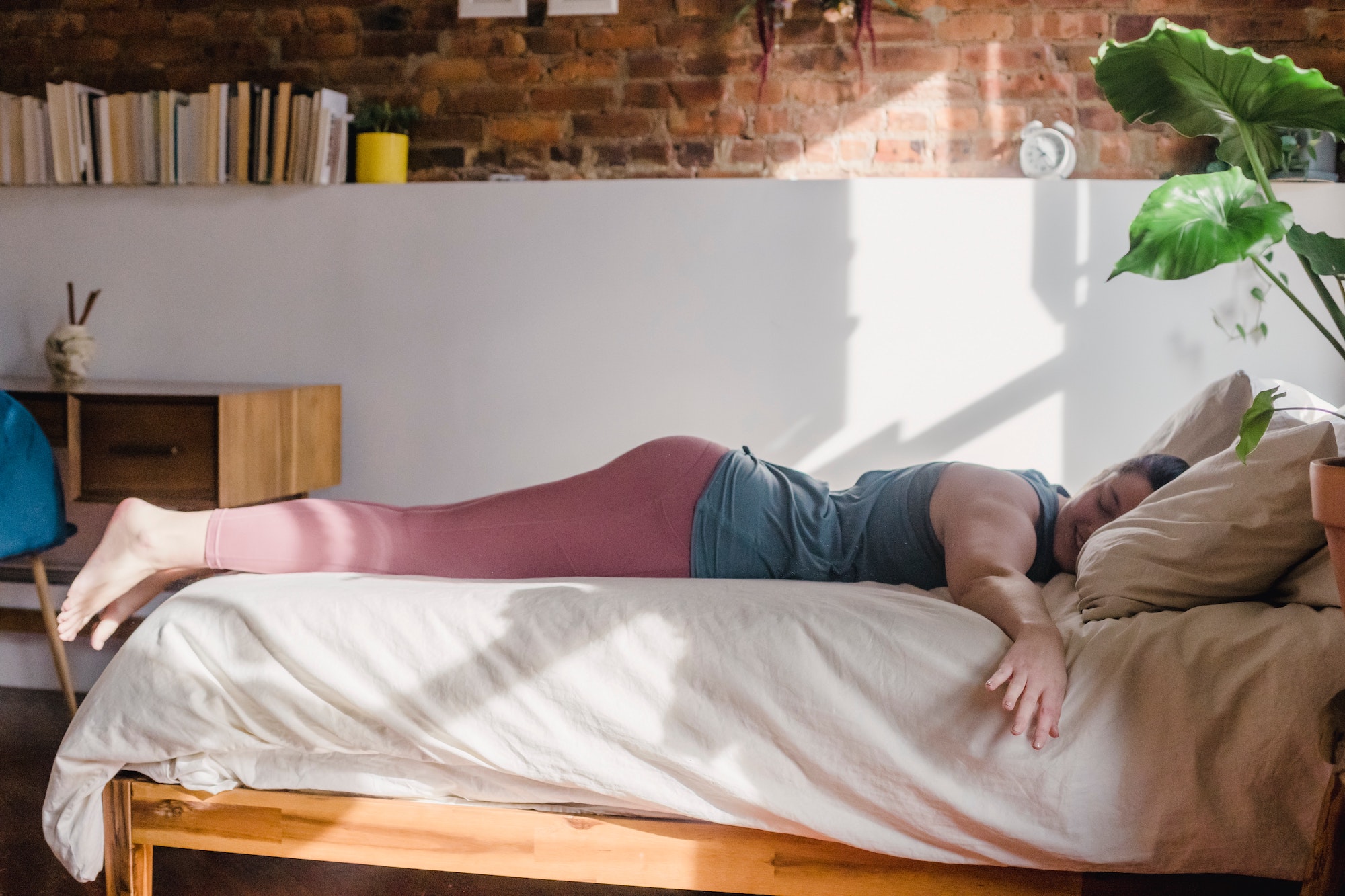
Endurance athletes always go the extra mile—whether it’s adding that extra scoop of protein powder to their morning smoothie or pushing themselves to hold a plank for an additional interval. But, one place where athletes often slack is when it comes to getting adequate sleep.
While an early morning run will certainly refresh your mind and prime your muscles for the day to come, getting that extra hour of sleep might be exactly what you need to propel yourself through workday and workout activities with ease.
To that end, without high-quality sleep, nearly every aspect of athletic performance (and your overall health) may suffer. To revitalize your sleep plan, follow this guide as we explore the connection between sleep and athletic performance and how you can set yourself up for success on and off the field.
Key Takeaways
- Poor sleep negatively impacts athletic performance, affecting endurance, accuracy, and reaction time.
- A lack of quality sleep may also make you more prone to injuries and illness.
- Adding CBD oil to your bedtime routine may help support healthy, restful sleep for improved health and athletic performance.
#1 Poor Sleep Can Lead to Less Stamina
Have you ever gone out for a run after a week of poor sleep? You’ll meet your pace and distance goals, but you may find yourself breathing extra heavily and feeling lethargic—even with the cool morning air brushing against your face.
The lack of pep in your step can often be traced back to how well you slept the night before.
According to the American College of Sports Medicine, sleep deprivation can impact your endurance, as demonstrated by a(n):
- Decreased ability to complete a certain distance in training
- Increase in perceived exertion, even during easier training
- Decrease in time to exhaustion
Interestingly, these changes in endurance were observed without a reduction in oxygen consumption or in the body’s ability to regulate its temperature. This may indicate that your brain and body connection (hindered by poor sleep) may be the culprit, rather than muscular failure.
#2 Your Accuracy and Reaction Time Suffers When You Lose Sleep
Endurance athletes aren’t the only ones who struggle when they don’t get enough sleep. Athletes who play sports where accuracy and reaction time are critical, such as tennis, basketball, and baseball, will have trouble when they don’t snooze restfully, too.
The skills needed to excel in these sports require significant hand-eye coordination. When you’re tired, your body is working hard to stay awake and perform necessary functional tasks, such as:
- Metabolism
- Responsiveness
- Digestion
- Growth
- Respiration
- Excretion
This can lead to cognitive impairment that slows down your reaction time. That’s why it’s so dangerous to drive a car when you’re exhausted—you can’t respond to hazards as quickly as you would if you had a restful night of sleep. The same is true of throwing a baseball with pinpoint accuracy or swinging a tennis racket to reach a match point.
While sleep deprivation slows your reaction time and throws off your accuracy, a little extra sleep can have the opposite effect. A study in the journal “Physiology and Behavior” observed that an increase of up to two hours of sleep improved the accuracy of athletes’ tennis serves by 35 to 41%. Reaching a proper sleep amount on a consistent basis is crucial for your cognitive performance.
#3 Your Nutrition Choices Are Impacted By Your Sleep
The effects of sleep deprivation extend beyond your performance to how you fuel up for your athletic pursuits—athletes need to eat a balanced diet of nutritionally dense foods for optimal performance.
However, if you’ve ever had a terrible night of sleep, you may find yourself reaching for sugar or fat-packed foods the next day to provide your body with an early morning energy boost.
There are several reasons your nutrition suffers when you don’t get adequate sleep, including:
- A lack of sleep alters your appetite-regulating hormones
- Your brain tells your body it needs high-calorie foods to counteract exhaustion
- In turn, you crave foods high in sugar and fat
If you’re consistently eating foods that don’t contain the nutrients, vitamins, and minerals your body needs for performance, you may struggle to meet your athletic goals once you hit the gym.
#4 Your Muscles Need Sleep to Recover from Hard Efforts
Poor sleep leads to poor nutrition, which can negatively impact your muscles’ ability to repair themselves after strenuous strength-training exercise, which can create small tears in your muscles.
As such, in order to build muscle, your body must repair these tears. This process typically occurs as you sleep, when your body produces growth hormones that promote recovery. If you don’t get enough rest, you’ll wake up with muscles that are:
- Sore and stiff
- Not ready for new activity
- Not completely repaired
Sleep recovery and athletic performance are intertwined—when one component suffers, it’ll be more difficult to achieve the athletic progress you desire.
#5 Not Enough Sleep May Lead to More Injuries
When you don’t get enough sleep and your body is unable to repair itself, you may be prone to more athletic injuries. For example, if you’re a cyclist who’s struggling to stay upright due to a hamstring injury, getting a few extra hours of sleep or giving yourself a rest day can help to repair your muscles and get you back on the bike.
According to the American College of Sports Medicine, athletes who get 7 hours of sleep or fewer per night for periods of 14 days or more are up to 1.7 times more likely to sustain a musculoskeletal injury. Of course, sleep isn’t the only factor that makes an athlete more likely to get injured but it can contribute to weaker muscular systems.
#6 Sleeping Too Little Impacts Your Immune System
A lack of sleep may also contribute to a weakened immune system. Your body doesn’t just repair muscle fibers when you sleep, it also refortifies your immune defense systems. When your immune system isn’t able to recuperate adequately, you’re more susceptible to:
- Bacterial and viral infections
- Muscular inflammation
- Chronic health conditions
- Memory and cognitive problems
Like your muscles, your immune system needs you to rest so that it can prepare itself for success the next day.
#7 Less Sleep Leads to Daytime Tiredness
Athletes have more than their sport to worry about each day—in addition to a sweat-producing workout, they must also manage workday responsibilities, family life, and everyday tasks. When you don’t get enough sleep, you’ll struggle to:
- Concentrate on daily work tasks
- Focus on things that require your attention, such as driving
- Remember certain important things
- Stay on track with your nutrition
As you can see, sleep deprivation impacts every aspect of your life including athletic performance. It can also be dangerous when it interferes with your ability to focus on driving and other tasks.
#8 Athletes May Need More Sleep Than Non-athletes
You’ve probably been told that 8 hours of sleep per night is the magic number. While it’s true that this is a good target for most people, it’s not universally applicable. As such, most athletes should aim for between 7 to 9 hours of sleep per night. And adolescent athletes should get at least 10 hours of sleep for optimal performance on and off the field.
However, the more training you put in, the more sleep you may need for maximum recovery. To that end, athletes who train for 4 or more hours per day should get between 10 to 12 hours of sleep per night to allow their bodies to fully recover. As an athlete, the importance of establishing healthy sleep habits can ultimately help you keep up with your physical fitness and sports performance.
Can Naps Help You Meet Your Sleep Goals?
If you struggle to meet your sleep goals at night, naps may help make up for missed sleep. However, naps should be kept to no more than 30 minutes to avoid falling into a deep sleep, which can disrupt your sleep cycle and cause you to wake up feeling groggy.
Furthermore, naps shouldn’t take the place of getting enough sleep at night—your body requires a combination of REM and deep sleep to function properly.
How to Prioritize Sleep for Peak Athletic Performance
Now that you know how important sleep is to your performance, let’s look at how you can revamp your sleep and recovery routine. There are four key habits you can adopt:
- Avoid caffeine late in the day – It can be tempting to sip a cup of coffee or black tea when you’re tired at 2 P.M. However, consuming caffeine late in the day will only disrupt your ability to sleep. This can set you up for a night of tossing and turning and a morning workout that’s tainted with feelings of fatigue. Considering the connection between CBD and cortisol, reach for a trusted CBD product for a boost in mental clarity as opposed to a latte late in the day,
- Stick to a regular sleep schedule – Humans are creatures of habit. When you go to sleep at the same time every night, your brain becomes accustomed to that schedule. You should also try to get up at the same time each morning. This helps train your body to recognize when it’s time to shut down and recover.
- Curate a relaxing sleeping environment – Your bedroom should be reserved for sleep. Keep the room dark, quiet, and cool to maximize conditions for sleep without disruptions. You shouldn’t have a television, laptop, or another device near where you sleep either, as blue light can suppress the secretion of melatonin.
- Design a relaxing pre-bed routine with CBD – The actions you take before you get into bed can also impact your sleep quality. Crafting a pre-bed routine that primes your body for relaxation is important for healthy and restful sleep. Drawing a warm bath, eating CBD gummies, and playing calming music can help you catch those Z’s and rest easy.
It might take a little time to get your sleep back on track—but once you do, you’ll be running circles around the competition.
Sleep Restfully with Resilience CBD
Sleep and athletic performance are closely intertwined—when you don’t sleep well, you won’t be able to run as far, lift as much, or recover as quickly. You’re also more susceptible to injuries and illnesses. Getting the proper sleep your body needs is essential for physical performance as well as cognitive performance. Establishing consistency in your sleep habits ensures your body stays healthy and receives all the rest it needs.
If you struggle with insufficient sleep and want to take control of your sleep health, consider CBD to help you reset your sleep pattern. Taking the proper CBD dosage for sleep can help relax your body and has the potential to deliver better sleep quality.
If you’re looking for a competitive edge, adopt a nightly routine with the help of Resilience CBD, your trusted CBD expert.
Our premium CBD products promote health and vitality and may support a night of more restful sleep. Champion your recovery with Resilience CBD. Afterall, adequate sleep isn’t only for an elite athlete looking to improve sports performance. It’s for everyone.
Sources:
Current Sports Medicine Reports. Sleep and Athletic Performance. https://journals.lww.com/acsm-csmr/fulltext/2017/11000/sleep_and_athletic_performance.11.aspx
Physiology & Behavior. Sleep Extension Improves Serving Accuracy: A Study With College Varsity Tennis Players. https://www.sciencedirect.com/science/article/abs/pii/S0031938415300895?via%3Dihub
PubMed. The Impact of Sleep Deprivation On Food Desire In the Human Brain. https://www.ncbi.nlm.nih.gov/pmc/articles/PMC3763921/
PubMed. Physiology of Growth Hormone Secretion During Sleep. https://pubmed.ncbi.nlm.nih.gov/8627466/
Current Sports Medicine Reports. Sleep and Injury Risk. https://journals.lww.com/acsm-csmr/Abstract/2021/06000/Sleep_and_Injury_Risk.3.aspx
PubMed. Sleep and Immune Function. https://www.ncbi.nlm.nih.gov/pmc/articles/PMC3256323/
Strength and Conditioning Journal. Sleep, Recovery, and Athletic Performance. https://journals.lww.com/nsca-scj/Fulltext/2013/10000/Sleep,_Recovery,_and_Athletic_Performance__A_Brief.8.aspx
National Cancer Institute. Body Functions and Life Processes. https://training.seer.cancer.gov/anatomy/body/functions.html


